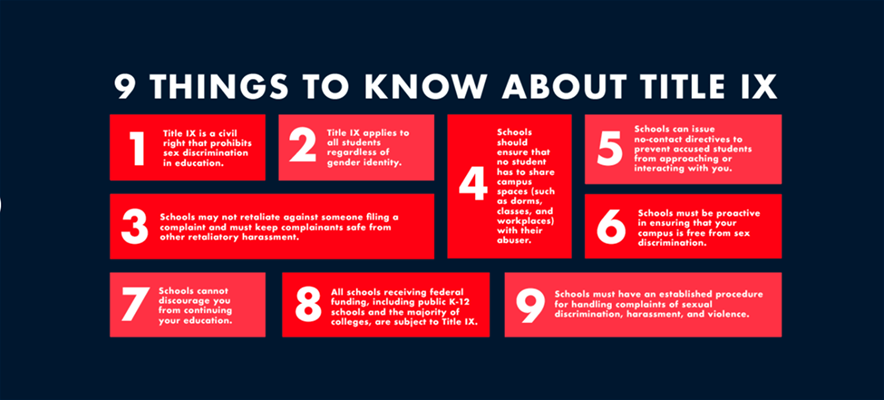Things to know about Title IX

Students come to school and colleges in the pursuit of knowledge and excelling in the field that they want to pursue as a career. However, when opting for a university, you must ensure that you know all your student rights. As a university, you must ensure to create and maintain a community free from all forms of exploitation and harassment, including sexual harassment. This is where Title IX comes into the picture. It is a law that plays a key role in gender equity in athletics and in preventing sexual harassment in academic institutes. This law came into effect on June 23rd, 1972, after being signed by then-President Richard Nixon. Wish to know more? Contact Lento Law Firm.
Things to know about Title IX:-
What is Title IX: It is a federal civil rights law that ensures no academic institutions for higher studies discriminate or exploits anybody on the basis of their sex and gender. It was first introduced to ensure equal opportunities for women in sports. However, today it applies to all forms of sexual harassment and assault. The law applies to all K-12 schools and colleges, vocational schools, libraries, and museums.
What does Title IX cover: Broadly speaking, Title IX covers numerous areas of education like athletics, classroom, sexual harassment and misconduct on campus, discrimination, admissions, and financial assistance for tuition. The law has now been extended to provide gender equity for the LGBTQ community as well. The law was invoked by President Obama, and it was advised that transgender students must be allowed to use the bathroom of their choice.
How does it affect athletics: The Title IX law ensures that at K-12 and university levels, the men’s and women’s sports teams are treated equally. It ensures that schools expand opportunities for women to play sports. It also ensures that there is no participation gap. The ratio of men’s athletic opportunities should be proportionate to the women’s athletic opportunities.
Accountability: The Title IX law is a federal civil right and is enforced by the Department of Education’s Office for Civil Rights. The department investigates the complaints filed by students if the university does not respond to them. However, it is the responsibility of the academic institute to protect the victims from any retaliatory behavior.
Every student has the right to a learning environment free of any harassment or violence. Title IX law protects students by allowing them to file complaints in two ways – local complaints are dealt with by the school’s Title IX coordinator or office, and Federal complaints are handled by the Education Department’s Office for Civil Rights.
